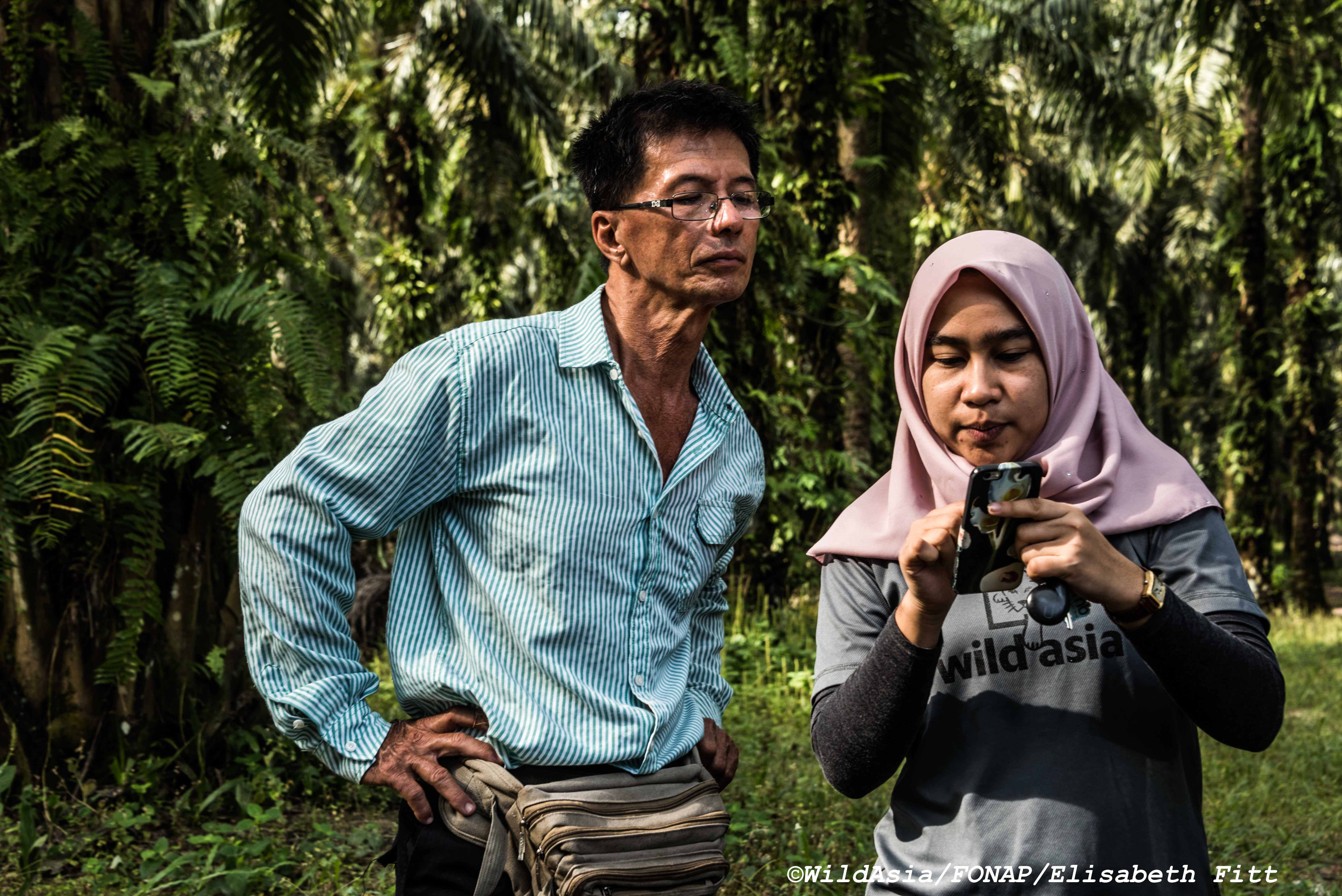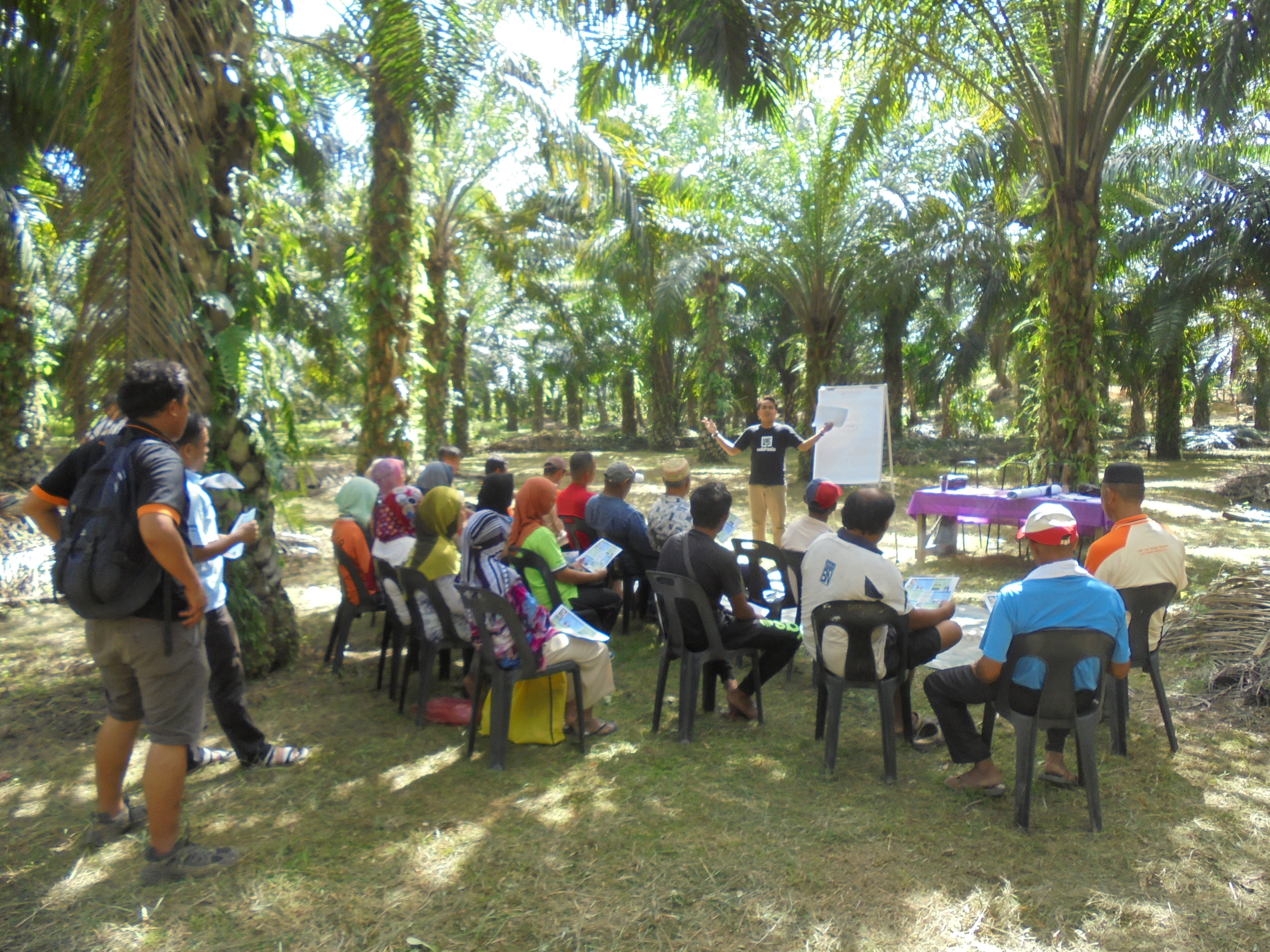Cooperatives In Cote D’ivoire
Associated
Côte d’Ivoire Maféré, Aboisso
October 2016 - September 2019
Completed Project
Not Certified
Yes
-
Oil palm plantations in Côte d’Ivoire cover an area of 250,000 ha, with an annual production of 420 000 tons CPO/year.
About 70% of the FFB production is provided by 40 000 smallholders who operate on 180,000 ha and are grouped into 30 cooperatives.
In 1995, these cooperatives were set up following the privatization of PALMINDUSTRIE (state company responsible for developing the oil palm sector and in charge of external services to the smallholders from 1963 to 1995). The smallholder’s yields ranged between 12 and 16 tons per hectare per year during that period.
After privatization, cooperatives have taken over the extension delivery systems to the farmers. This support involved FFB collection from plantations to mills, agronomy, roads maintenance and inputs provision.
Twenty years after, the results are mixed with lower yields (4 to 8t/ha). This low productivity is due to poor agronomy, limited use of fertilizer, limited renewal of old plantations, losses during the peak production and mainly the poor management of cooperatives.
Only 10% of cooperative, run correctly in 2012 and currently no plan is implemented to effectively strengthen the capacity of these groups of smallholders. Without support these cooperatives go directly out of the business and famers will be devoid of any assistance.
With increasing demand for RSPO certified palm oil (3 of 5 major oil palm companies are in the way to obtain RSPO certification in 2016-2017) coupled with the fact that smallholder cooperatives supply more than 70% of FFB required by oil palm processing mills, cooperatives will be left out of the supply chain if they didn’t attain RSPO certification. These groups however, don’t have the capacity to pay for assistance to obtain RSPO certification.
To ensure that the operational capacity of these groups is adequately strengthened and they are integrated into the RSPO certified oil palm supply chain, funding is being sought from the RSSF strengthen the quality of external delivery systems for increasing the productivity of smallholder’s farms and obtain RSPO certification group
This project will cover an area of 15 000 ha with 5 000 farmers and it implementation will influence the awareness of RSPO in Côte d’Ivoire, which is the only CPO exporter in West Africa.
The main components of this project are:
A- Capacity building program of Cooperatives
B-: Training on (BMP)
C: RSPO Group Certification
D: Development of certified FFB/CSPO market
- Type of Support Required
- Additional Project Information
- Project Information
-
Looking for Project Partners
Funding
Seeking Additional Funding and used for
- HCV Assessment
RSPO Credits
Selling Certified Volume as RSPO Credit?NoInterested to be Contacted by Potential Buyer?No -
Smallholder Story / Quote

Group manager (Adje Lucien, first line), Director COOPTOSA one of the cooperative involved in the project. “we are very enthusiastic about this new project. As smallhoders cooperative manager we want to give more to producers. This project will help us to better deliver to them “
Lessons Learnt
A. Small producers are less interested in joining the groups that are underperforming in existing extension services.
The groups formed for RSPO group certification are from cooperatives that already provide services to smallholders. However, several smallholders are not satisfied with the services provided, especially as the funding of the extension service system comes from the financial contribution of smallholders.
In the case of a few groups, small producers require more commitment from groups in existing services than to come up with a new group certification project (that is more demanding in compliance activities).
B. Smallholders would like to have fast financial returns from the RSPO certification (monthly or annuals premiums such as cocoa)
In a competitive environment, smallholders are very sensitive to projects that have a positive and fast influence on the purchase prices of FFBs.
Many of them compare the cocoa certification and the RSPO, with the systematic distribution of premiums on the annual or monthly basis.
C. Compliance with the land certificate or use right represents a big issue for smallholders
The land certificate or the demonstration of use rights is a requirement that producers fear in the RSPO certification projects. Other certifications such as cocoa standards (fairtrade, UTZ) are not too demanding at this level. In Addition, the costs related to the registration of one hectare of land are high (350 euros/ha) and the procedure includes some 60 stages. Producers are poor informed about land registration procedures.
Relevant Tools used for Project Implementation
Other Information as Deemed Relevant by the Organisation
-
Project Details
Name of The Smallholder Group SupportedCooperatives In Cote D’ivoireType of Smallholders Supported by This ProjectAssociatedCountry & Location of ImplementationCôte d’Ivoire Maféré, AboissoProject PeriodOctober 2016 - September 2019Status of The ProjectCompleted ProjectProject Certification StatusNot CertifiedCo-funded by RSSFYesAverage Smallholder Yield (in FFB/ha/year)
At Project Start: 4 to 8 t/ha/year
At Project End: Not yet mesuredCurrent Partner Organisations
Funding: RSSF
Implementing: MMatrice, Independants consultants
Supply Chain Partner: Millers (PALMCI/DEKEL OIL/AGRIVAR)
Other: oil palm professional associations
AIPH: Inter-professional Association of Oil Palm Industry in Côte d’Ivoire
FENACOPAH-CI: Ivorian Oil palm Smallholders Cooperative National Federation










